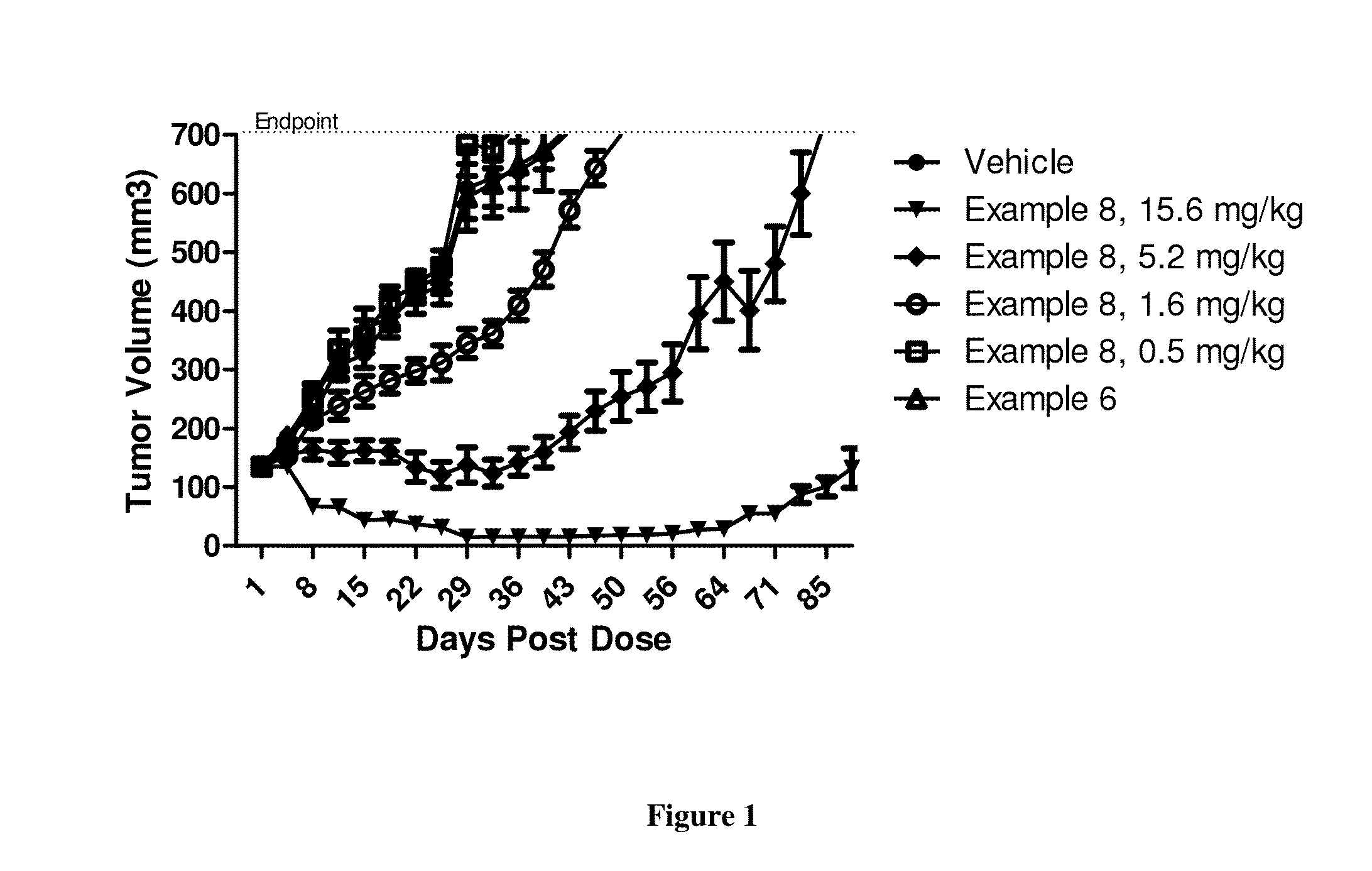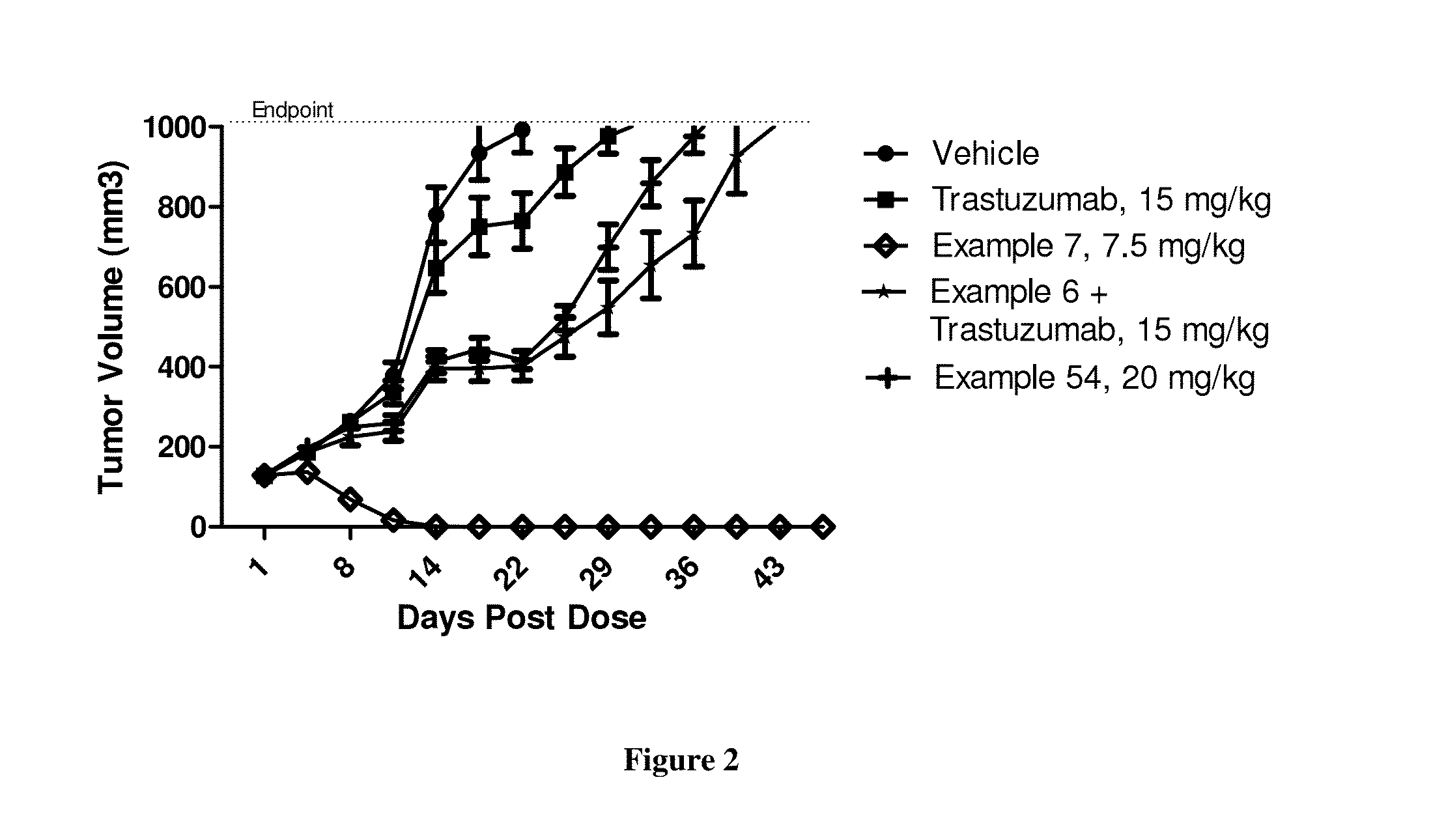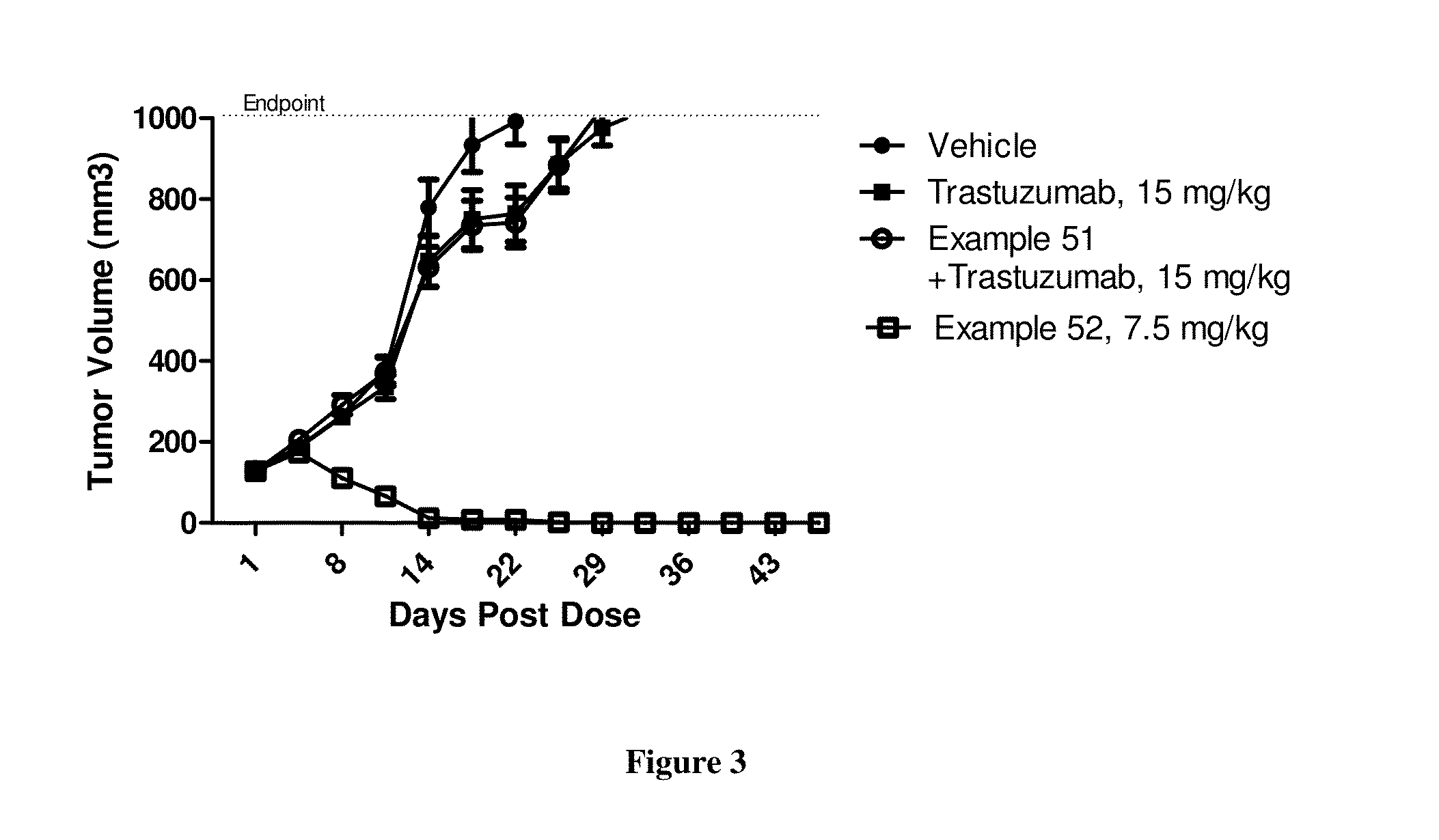Protein-Polymer-Drug Conjugates
a technology of polymer and conjugate, applied in the field of protein-polymerdrug conjugate, can solve the problems of increasing the number of forms, increasing the complexity of the formulation, and many drugs exhibiting limited or otherwise reducing the potency and therapeutic
- Summary
- Abstract
- Description
- Claims
- Application Information
AI Technical Summary
Benefits of technology
Problems solved by technology
Method used
Image
Examples
example 1
Synthesis of PHF-β-Alanine
A. Synthesis of 30 kDa PHF-β-Alanine:
[1092]
[1093]PHF (30 kDa, 4.54 g, 33.6 mmol PHF monomer) was dissolved in 150 mL anhydrous DMF, followed by the addition of bis(nitrophenol) carbonate (3.07 g, 10.1 mmol). The solution was stirred at 40° C. for 4 h. β-Alanine (1.50 g, 16.8 mmol) dissolved in water (10 mL) was added to the PHF mixture. The pH was adjusted to 7.5-8 with TEA and the reaction mixture stirred at 23° C. for 18 h, diluted to 400 mL with water and the pH adjusted to 11 with 5N NaOH. The resulting mixture was stirred for 1 h at ambient temperature, the pH was adjusted to 6.5 and then the mixture was diluted to 10% organics with water. The product (30 kDa PHF-β-Alanine) was purified using ultrafiltration cartridge equipped with 5K Biomax membrane filter. The purified product was lyophilized to give the title compound as a white solid (2.07 g, 36% yield). The molar fraction of the PHF monomer units substituted with β-alanine was 13%, as determined b...
example 2
Synthesis of 30 kDa PHF-GA
[1096]
[1097]N,N-Dimethylpyridin-4-amine (0.268 g, 2.91 mmol) and glutaric anhydride (1.375 g, 12.06 mmol) was added to a solution of PHF (30 kDa, 1.48 g, 10.96 mmol PHF monomer) in DMA (300 mL) and anhydrous pyridine (33.3 mL). The reaction mixture was stirred at 60° C. for 18 h. The solvents were removed under reduced pressure and the resulting thick oil was taken up in water (100 mL). The pH was adjusted to pH 6.0-6.5 with 5N NaOH. The resulting clear solution was diluted to 200 mL with water, filtered through a 0.2 micron filter, and purified by diafiltration using a membrane filter, 5000 molecular weight cut-off. The water was removed by lyophilization to give 30 kDa PHF-GA as a white solid (1.28 g, 48% yield). The fraction of the total PHF monomer units substituted with glutaric acid as determined by 1H NMR was 96%.
example 3
Synthesis of Trastuzumab-MCC Derivative
[1098]
[1099]Trastuzumab (10 mg) was dissolved in PBS buffer (1 ml, pH 7.0), then a solution of SMCC in DMSO (5 μL, 30 mg / ml) was added. The resulting solution was stirred at room temperature for 2 h. The trastuzumab-MCC was purified by gel filtration using a PBS equilibrated PD-10 column (90% yield). Analysis showed that on average 5 to 6 MCC groups were linked to one trastuzumab.
[1100]Other PBRM-MCC derivatives, such as, MCC derivatives of cetuximab, rituximab, bevacizumab, nimotuzumab, gemtuzumab or alemtuzumab, are synthesized with methods similar to the procedure described above.
PUM
 Login to View More
Login to View More Abstract
Description
Claims
Application Information
 Login to View More
Login to View More - R&D
- Intellectual Property
- Life Sciences
- Materials
- Tech Scout
- Unparalleled Data Quality
- Higher Quality Content
- 60% Fewer Hallucinations
Browse by: Latest US Patents, China's latest patents, Technical Efficacy Thesaurus, Application Domain, Technology Topic, Popular Technical Reports.
© 2025 PatSnap. All rights reserved.Legal|Privacy policy|Modern Slavery Act Transparency Statement|Sitemap|About US| Contact US: help@patsnap.com



